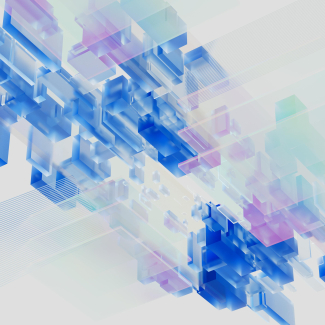
Vivatech 2022: the CNRS presents the challenges and technologies of the future
The CNRS will present an overview of its know-how in deeptech during its third participation at the Vivatech gathering in Paris from 15-18 June 2022. Visit the CNRS booth to discover how scientists and companies from or supported by laboratories from the CNRS and its partners are developing technologies of the future.
"Innovation & Prospectives": CNRS Talks
Cybersecurity, space exploration, decarbonising industry, health engineering... On 15 and 16 June, ten talks will present the state of on-going research in laboratories from the CNRS and its partners, on subjects identified as priorities in the government’s national acceleration strategies, and in keeping with the Investments for the Future Programmes. They will provide an opportunity to understand the innovative projects of the future.
Each talk will include a presentation by a CNRS scientific expert on the subject, as well as accounts from two start-ups emerging from or supported by CNRS laboratories.
Programme for Wednesday 15 June
11:15 – 11:45: The challenges of hydrogen and the decarbonisation of industry
Abdelilah Slaoui, Point of Contact for the Decarbonised Hydrogen PEPR, and Head of the CNRS Energy Cell
Marc Robert, CSO and Co-founder of the start-up Carboneo
Nicolas Jerez, CEO of the start-up Bulane
14:00 – 14:30: Recyclability & recycling: a transition toward the circular economy
Representative from the start-up Rosi Solar
Gilles Dusordet, CEO of the start-up Funcell
15:15 – 15:45: Health engineering
Christian Périgaud, Head of the Health Division for the CNRS Business Relations Department (DRE)
Pascal Descargues, Founder and CEO of the start-up Genoskin
Amanda Silva Brun, Co-founder of Evora Bioscience
16:30 – 17:00: Technology in the service of health
Anne-Marie Gué, Project leader for Interdisciplinarity (INSIS)
Representative from the start-up Cardiawave
Anaïs Barut, CEO and Co-founder of the start-up Damae Medical
Programme for Thursday, 16 June
10:00 – 10:30: Data storage: the DNA revolution
Anne SIEGEL, Deputy Scientific Director for Interdisciplinarity and Interfaces, Research Group (GDR) Monitoring
Erfane Arwani, Founder and CEO of the start-up Biomemory
11:15 – 11:45: French research at the heart of the quantum plan
Sébastien TANZILLI, Point of Contact for the Quantum technologies PEPR
Chloé Poisbeau, COO of the start-up Alice&Bob
Peter Rosenbusch, PhD Head of Systems Engineering, iXblue
12:30 – 13:00: Pharmacology and new therapies
Christian Périgaud, Head of the Health Division for the CNRS Business Relations Department (DRE)
Magali Beffy, CTO of the start-up Aqemia
Nikos Paragios, Chairman & Chief Executive Officer, Therapanacea
14:00 – 14:30: From digital technology to artificial intelligence
Olivier Cappé, Deputy Scientific Director for Transversal Scientific Projects (INS2I)
Adrien Vives, Sales Manager for the start-up Actronika
Adrien Thirion, Doctoral student in AI at the start-up Nanomade
15:15 – 15:45: Objective cybersecurity
David Pointcheval, Senior Researcher and Director of the Computer Science Department at l’École normale supérieure (INS2I)
Bruno Grieder, CTO and Co-founder of the start-up Cosmian
Laurent Henocque, Founder and CEO of the start-up Keeex
16:30 – 17:00: Observation & space exploration
Gilles OHANESSIAN, Member of the TGIR Committee, and Senior Researcher at the Laboratory of Molecular Chemistry
Jean-Luc Maria, CEO and Co-founder, Exotrail
Alexandre d'Aspremont, Founder of the start-up Kayrros, and CNRS Senior Researcher at the Computer Science Department at l'ENS
Health, sustainable development, and digital technology: the start-ups present at the CNRS booth
This year at Vivatech, the CNRS has decided to feature 12 companies whose technologies emerged from basic research results, and meet the challenges of the future in the fields of health, sustainable development, and digital technology
In the field of health, visitors can learn more about the following: Aqemia, which uses artificial intelligence and quantum physics to discover new therapeutic molecules; Cardiawave, which treats heart diseases with ultrasound; Damae Medical, whose technology can detect and monitor skin cancer without a biopsy; and Genoskin, which produces human skin models to test molecules in advance of clinical trials.
Technologies relating to sustainable development will be represented by Bulane, which decarbonises industry using hydrogen combustion; Carboneo, which recycles the CO2 of companies and reduces their carbon footprint; FunCell, whose biosourced additives can reinforce paper and cardboard; and Rosi Solar, which recycles the raw materials found in the waste produced by the photovoltaic industry.
Digital technology is also a leading sector for the creation of start-ups at the CNRS: Alice&Bob designs universal, fault-tolerant quantum computers; Kayrros controls industrial infrastructure via satellite imagery; Actronika adds the sense of touch to audio or visual interfaces; and Nanomade makes any object tactile thanks to its pressure sensors made of nanoparticle ink.
Also presented, outside next to Pavilion 1: the demonstrator for Batiprint3D, which develops industrial solutions for the construction industry. The company has already built housing with its robot-printer, and offers services relating to the thermal isolation of building facades.


